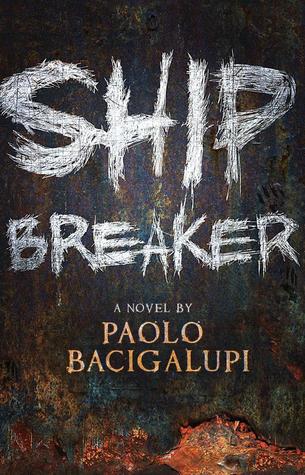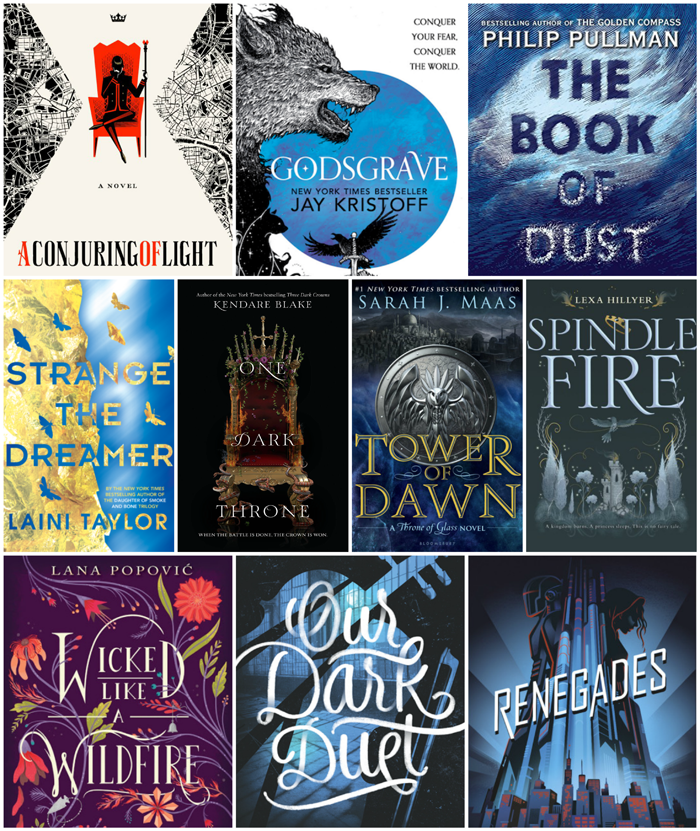
I recently read a New York Magazine article describing how climate change will have a catastrophic impact within the next decades, likely within my lifetime. The reality that we live in makes books like Ship Breaker (and Want, another recent read) seem more near-future and predictive than science fiction and is part of what makes this novel so effective.
Ship Breaker is set along the Gulf Coast in a near-future America full of drowned cities where city-killer storms can radically change the coastline in a day. Nailer is a teenage ship breaker, small enough to crawl into the dark depths of beached oil tankers and strip them of metals like copper that are shipped out and sold. He and his fellow inhabitants of Bright Sands Beach are dirt poor and work in what is essentially indentured servitude. They live in shacks and lack access to necessities such as enough food, protective working gear, and antibiotic medicine. His father is a violent, abusive drunk and his mother passed away from illness years ago. One day, Nailer and his friend Pima discover a beached clipper ship–one of the modern ships they often seen in the distance that only the rich can afford–and while stripping it of the excessive wealth that they find, they discover a swank, a rich girl, and must decide what to do with her: kill her and take their plunder, or save her and hope that she can lead them to a better life?
The only novel I’ve read from Paolo Bacigalupi before Ship Breaker was The Water Knife, one of his adult novels that has a similar theme examining the devastating effects of climate change. Although I found Bacigalupi’s themes and content interesting, I struggled to engage with his writing, and ran into the same problem with Ship Breaker. It took me several chapters before I was hooked, but there was sufficient action so that when I was in, I was all the way in and Ship Breaker ended up being a pretty quick read.
Ship Breaker has many elements common to a poor-boy-meets-rich-girl story, but differentiates itself in the complex way it handles morals vs. money and the post-apocalyptic setting. The changing climate has exacerbated income inequality and money is almost a vice, becoming the driving factor in people’s lives and outweighing moral principles. The rich believe themselves to have morals while the poor are all too willing to do whatever it takes to get some money and improve their lives. Nita, the girl that Nailer and Pima discovers, takes pride in her company’s commitment to “clean” industry, but her company also directly contracts and benefits from “blood buyers” who profit from the blood, sweat, and tears of poor workers like Nailer. He voices the complicated relationship between morals and money when he tells her, “The only reason you think you’ve got morals is because you don’t need money the way regular people do.”
Throughout the novel Nailer struggles with his own moral principles. Ship breakers run on their on moral codes where breaking blood oaths means social exile. But the ship breakers are also willing to turn their backs on those they do not have oaths with, and aren’t afraid to shed blood for self-preservation or self-promotion. In multiple instances Nailer must make a decision between self-preservation, doing what he thinks is “right”, and getting ahead in life.
Ship Breaker is a strong novel and good read despite its slow start with a warning message about climate change that is worth heeding and a little more complexity and depth than your usual young adult novel.
Advertisements Like this:Like Loading... Related




